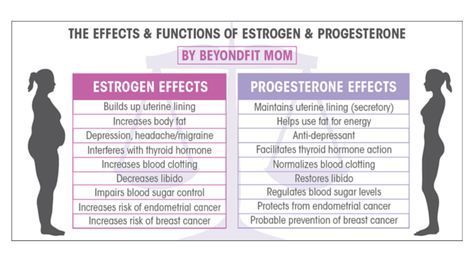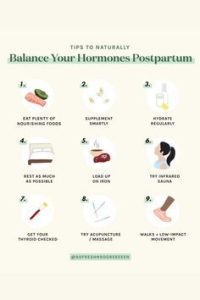
When it comes to women’s fitness, hormones play a crucial role in various aspects of their health and well-being. Hormones are chemical messengers produced by glands in the endocrine system that regulate countless bodily functions. These substances are responsible for controlling metabolism, sleep patterns, mood, muscle growth, and even reproductive health. Understanding the impact hormones have on women’s fitness is essential for maximizing results and maintaining overall wellness.
The Role of Estrogen
Estrogen is the primary female sex hormone, and it plays a significant role in women’s fitness. This hormone contributes to bone health, as it helps regulate calcium absorption and bone density. Additionally, estrogen supports the production of collagen – a protein that promotes skin elasticity and joint health. Adequate levels of estrogen are crucial during physical activity, as it helps protect against bone loss and reduces the risk of injury.
The Influence of Progesterone
Progesterone is another vital hormone in women’s fitness. It plays a crucial role in the menstrual cycle and pregnancy, but it also has a significant impact on overall well-being. During exercise, progesterone helps regulate body temperature and acts as a natural diuretic, reducing bloating and fluid retention. It also promotes relaxation and quality sleep, which are essential for muscle recovery and overall fitness progress.
The Impact of Testosterone
Although commonly associated with males, testosterone is also present in women, although in smaller amounts. This hormone is responsible for muscle growth, strength, and endurance. Women with higher testosterone levels tend to experience greater gains in muscle mass and athletic performance. However, imbalances in testosterone levels can lead to unwanted side effects, such as increased body hair, acne, and mood alterations. It is crucial to maintain a healthy balance to reap the benefits of testosterone during exercise without any adverse effects.
Thyroid Hormones and Metabolism
The thyroid gland produces hormones that regulate metabolism. When it comes to women’s fitness, maintaining a healthy balance of thyroid hormones is essential for maintaining energy levels and a healthy weight. An underactive thyroid, known as hypothyroidism, can lead to fatigue, weight gain, and difficulty in losing weight. On the other hand, an overactive thyroid, known as hyperthyroidism, can cause weight loss and muscle weakness. Regular exercise and a balanced diet can help support optimal thyroid function.
Stress Hormones and Exercise
Stress, whether physical or emotional, triggers the release of stress hormones such as cortisol. While cortisol is necessary for survival, chronic high levels of cortisol can have negative effects on women’s fitness. Prolonged stress can lead to increased abdominal fat storage, decreased muscle mass, and impaired recovery. Engaging in regular physical activity and incorporating stress-reducing practices such as meditation or yoga can help regulate cortisol levels and promote better overall fitness.
Conclusion
In conclusion, hormones play a significant role in women’s fitness. From estrogen and progesterone to testosterone and thyroid hormones, each has specific functions that impact various aspects of health and well-being. Understanding how hormones affect the body during exercise can help women optimize their fitness journey and achieve their goals effectively. It is crucial to prioritize hormonal balance through adequate nutrition, regular exercise, and stress management practices to maintain overall wellness and enhance women’s fitness.

